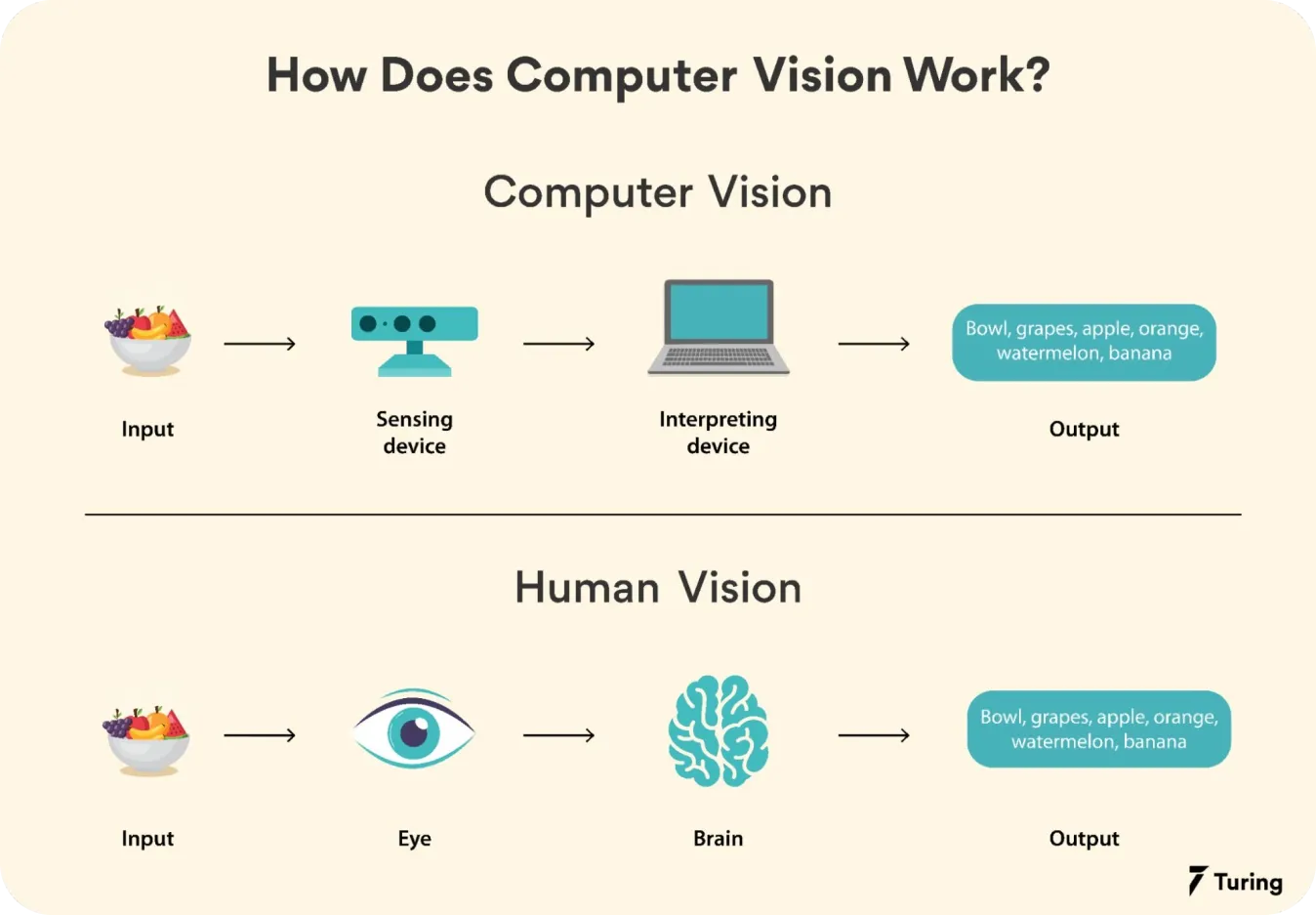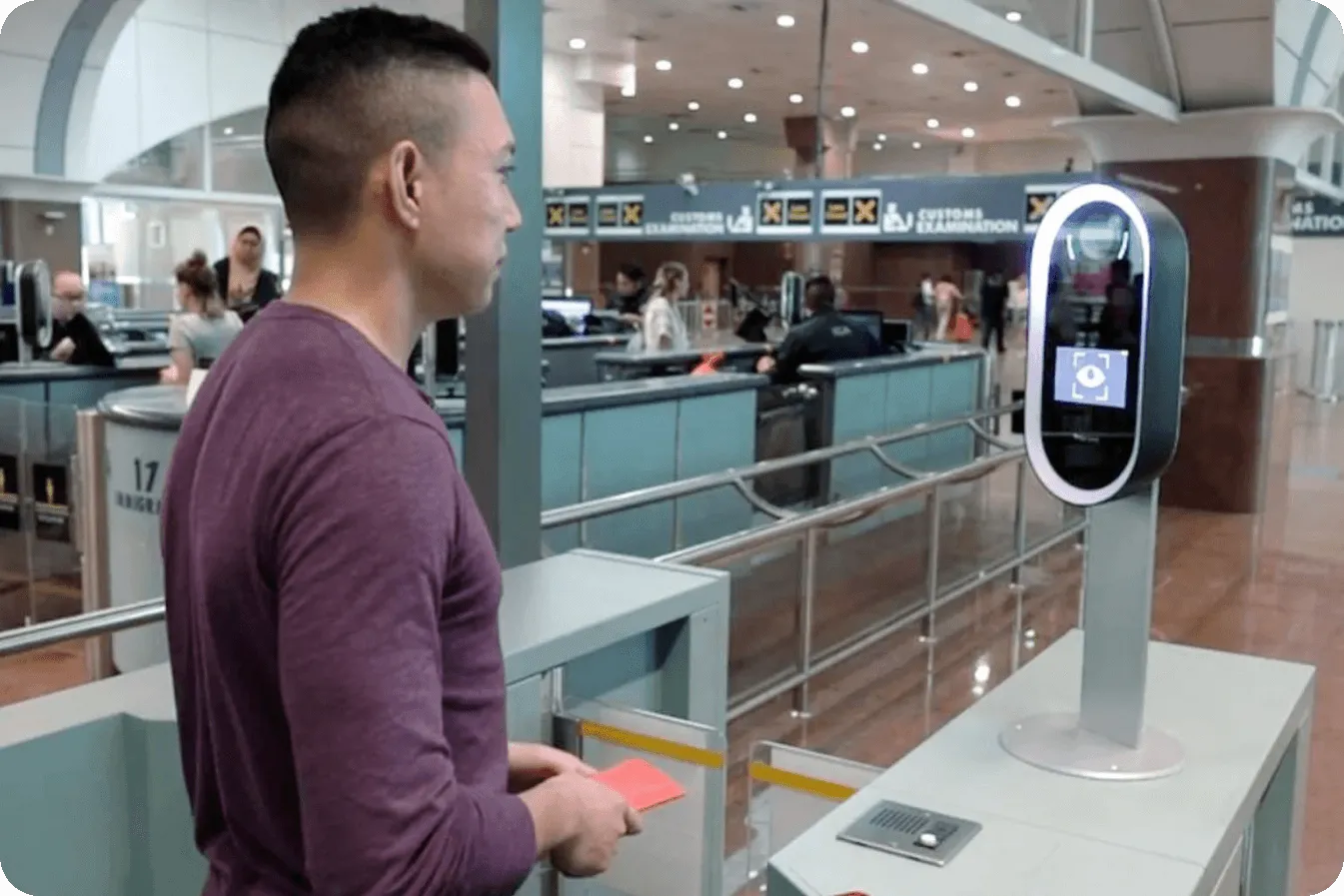Take a look at how AI security cameras are transforming safety and monitoring. From detecting wildfires to theft, the future of surveillance is computer vision.

Take a look at how AI security cameras are transforming safety and monitoring. From detecting wildfires to theft, the future of surveillance is computer vision.

CCTV cameras are quite a common part of infrastructure nowadays. AI is the element that makes them a novel innovation. AI security cameras don’t just watch and monitor. They help take action and keep our society safer. From detecting trespassers to wildfires, let’s understand how AI security cameras are making a difference.
An AI security camera is a camera that is integrated with computer vision. Computer vision is a subfield of artificial intelligence that aims to recreate the ability of a human to see and perceive things through technology. By analyzing images and videos, computer vision can understand our world without a human’s assistance.

With AI being accepted and adopted around the world, the global AI camera market was valued at $8.09 billion in 2022 and is predicted to grow by 23.1% every year from 2023 to 2030. AI security cameras are becoming increasingly important for protecting homes and businesses. Next, let’s take a closer look at the applications of AI security cameras.
AI security cameras can be used in various scenarios to achieve different goals. For example, an AI security camera can be used to monitor an assembly line in a manufacturing factory or a hall at a public school for suspicious activity. Let’s walk through a few examples of how AI security cameras can be used to explore what exactly they can do.
Facial recognition is a powerful application of AI security cameras. Manual identification systems where humans have to verify IDs can be slow and biased. However, AI algorithms are swift and can accurately identify facial features.
This technology can be used by security and law enforcement agencies. They can use it for access control in government buildings, financial firms, and corporate offices. It can even be used for immigration at airports!
The Changi Airport in Singapore is a great example of this. They use facial and iris recognition to automate immigration and make it contactless.

Here's an overview of how facial recognition technology works to improve security with AI:
AI security cameras can be used to manage city traffic better. Traffic management using AI and computer vision is the first step towards exciting innovations in transportation, such as self-driving vehicles. These cameras have advanced computer vision algorithms that watch and analyze how traffic moves. They can see when traffic is heavy or light and adjust traffic lights accordingly. This means less waiting at red lights and fewer traffic jams.
The cameras can also spot where traffic gets clogged up and help fix these problem areas. By making traffic signals smarter, vehicles move more smoothly and quickly. This reduces the time people spend commuting and makes city driving easier. Overall, it's a more efficient way to control traffic in busy areas.
How is this possible using computer vision? Using models like YOLOv8, AI security cameras can use techniques like object tracking to enhance traffic management. This involves not just recognizing and counting vehicles but also understanding their behavior and patterns on the road. With this detailed analysis, traffic systems become more intelligent, facilitating a smoother and a more efficient traffic flow.
Shopping centers face a constant threat of shoplifting. Expensive security services aren't always practical. Small businesses may find them too costly, and large businesses might not see their value due to the high volume of visitors. Traditional systems can't keep up with processing so many people. AI security cameras are the best solution for this.
AI security cameras can spot suspicious behavior in real-time using powerful machine learning algorithms. They can alert you when someone is attempting to steal merchandise.
Here's how AI security cameras work to prevent shoplifting:
This process helps catch shoplifters more efficiently than traditional methods.
AI security cameras can detect wildfires and smoke early. They use advanced algorithms to analyze video footage in real-time. These cameras identify smoke patterns and changes in the environment that signal a fire. When they detect smoke or fire, they instantly alert authorities. This quick response can help prevent wildfires from spreading, protecting lives, properties, and wildlife.

This quick detection is key to fighting wildfires. The cameras keep an eye on large areas, like remote forests, where it's tough for people to watch all the time. Catching early signs of fire means firefighters can respond faster. They also get useful info about where the fire is and how it's moving. This helps them fight the fire more efficiently. Thanks to this tech, we're getting better at protecting the environment and preventing natural disasters.
AI security cameras offer many benefits for improving security and operational efficiency:
These benefits make AI security cameras indispensable for modern security and business operations.
Many leading companies are now using AI security cameras in their operations. You might recognize a few. For example, Amazon Go is a 1,800-square-foot mini-market that uses AI security cameras and sensors to follow customers around and check out what they’re buying. With their "Just Walk Out Technology," you can shop without ever needing a cashier. Just pick up what you want, and you'll be automatically charged for it.
Tesla cars, including their self-driving models, also use AI for smart security systems. They have cameras and sensors that can spot break-in attempts or strange activities around the car. If it detects something fishy, the alarms go off, and alerts are sent to the owner.
Similarly, Google Nest uses AI security cameras in its smart home security systems. The cameras can tell the difference between regular activities and possible security issues. They also enable remote home monitoring by sending periodic alerts to homeowners, keeping homes safe and secure.
Innovative companies from all over the world are realizing the true potential of AI security cameras. These startups are making amazing contributions to the field and showcasing how AI can be applied to drive advancements in the surveillance industry.
Here are some great AI startups in the surveillance sector:
We've seen how AI security cameras transform everything from shopping to wildfire detection. With benefits like enhanced detection and cost-effectiveness, they're becoming essential tools for safeguarding our homes, businesses, and the environment.
AI security cameras will undoubtedly play an increasingly important role in ensuring safety and security as technology evolves. Maybe next time you see a CCTV camera, you’ll wonder if it’s equipped with AI.
At Ultralytics, we're passionate about pushing AI to new heights. Check out our GitHub repository to see our latest advancements in artificial intelligence. From redefining healthcare to transforming agriculture, we're dedicated to driving innovation with AI!